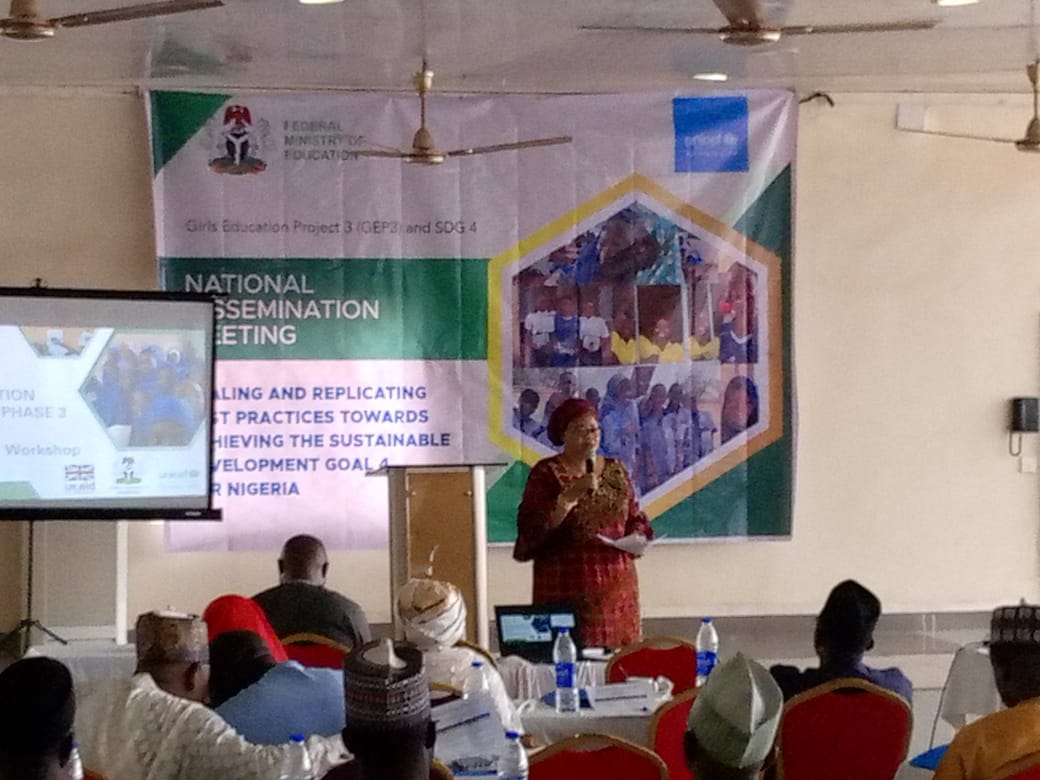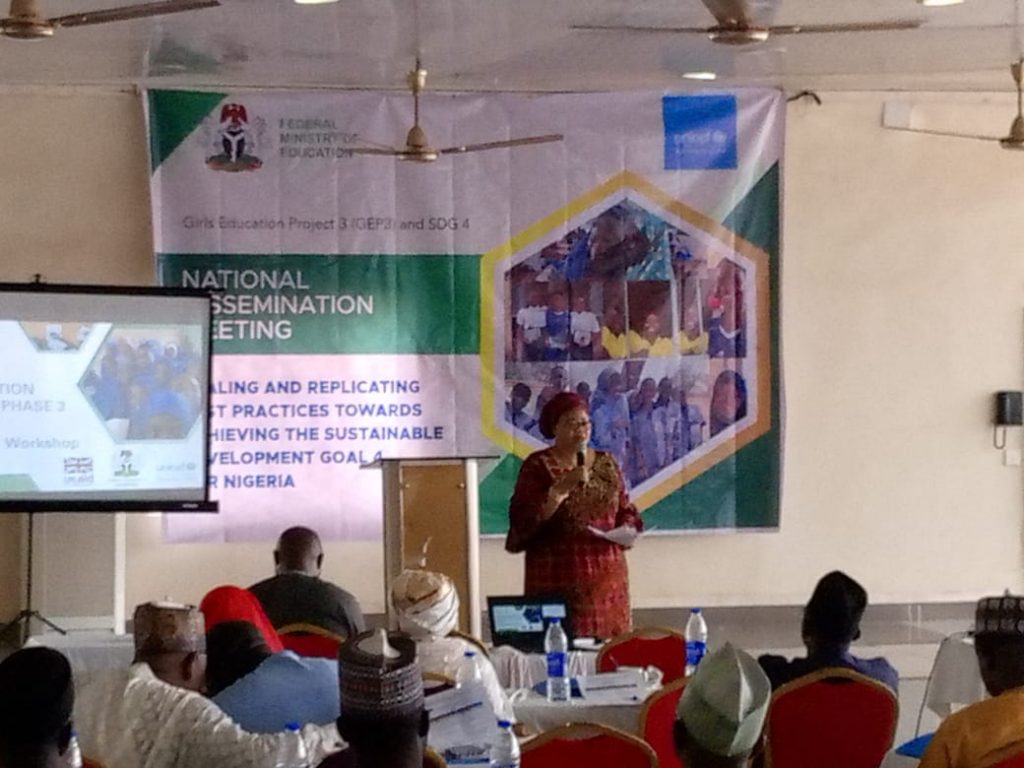
United Nations Children’s Fund says enrollment of Girls to School has increased to one point five million in Six States of Northern Nigeria following the implementation of Girls Education Project Phase 3 (GEP3) in ten years.
Education Specialist of UNICEF in Nigeria, Mrs Azuka Menkiti made this known at the dissemination of findings from Evaluation of Girls Education Project Phase 3 (GEP3) and the Sustainable Development Goals 4 (SDG4) meeting in Kaduna.
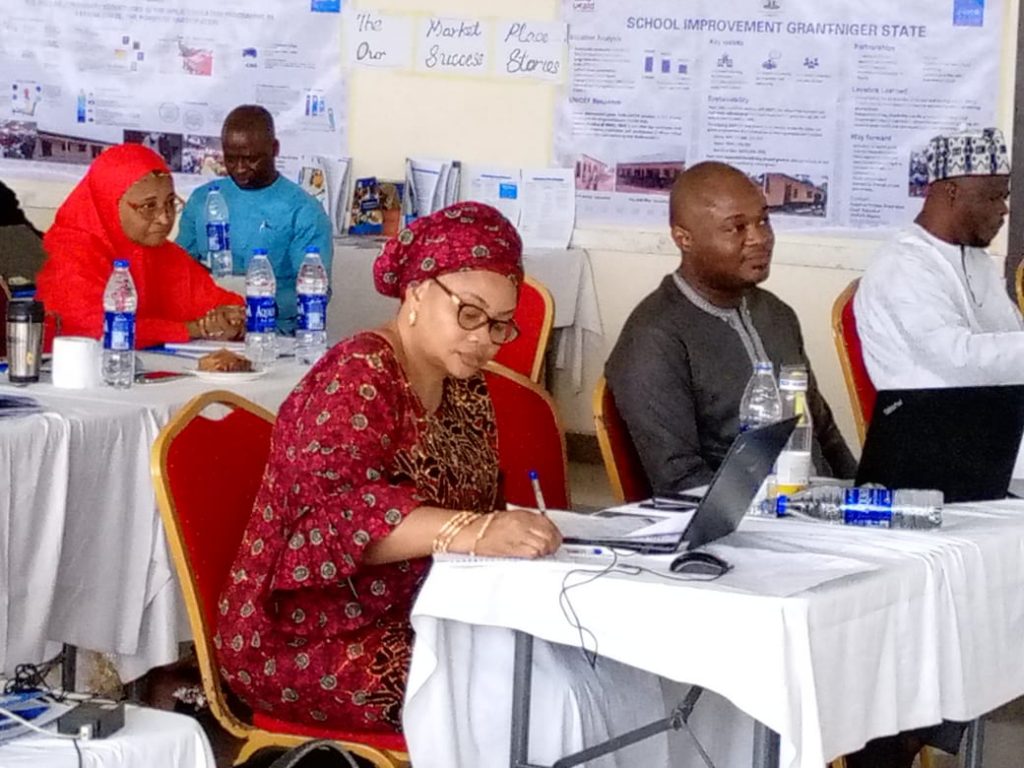
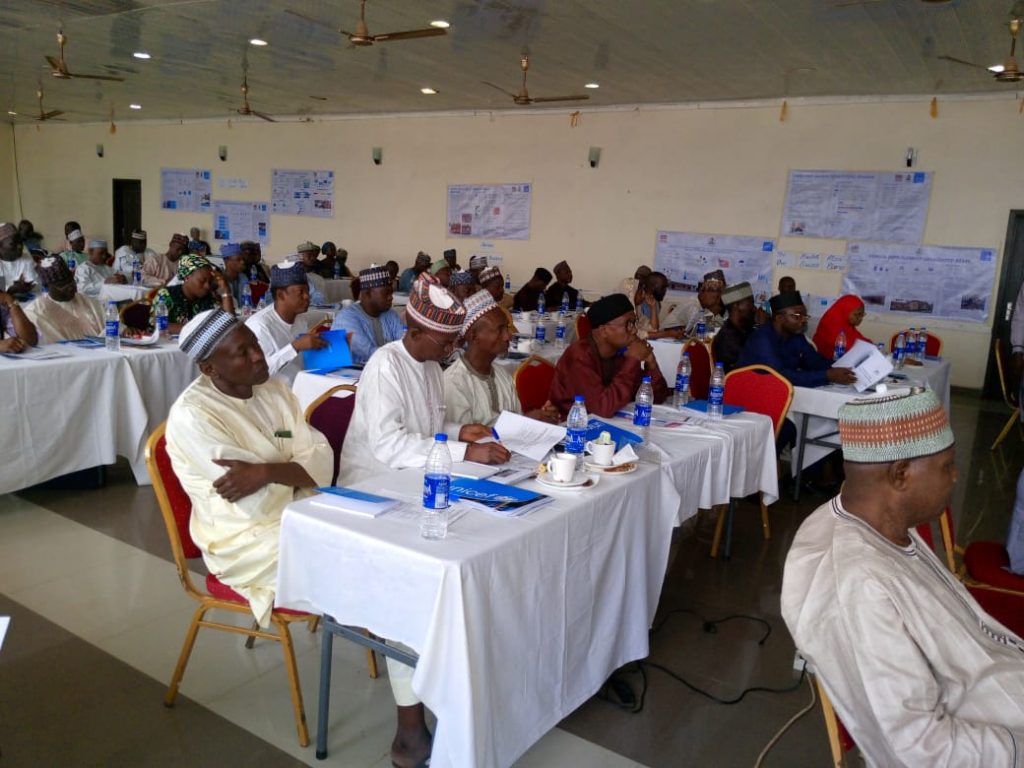
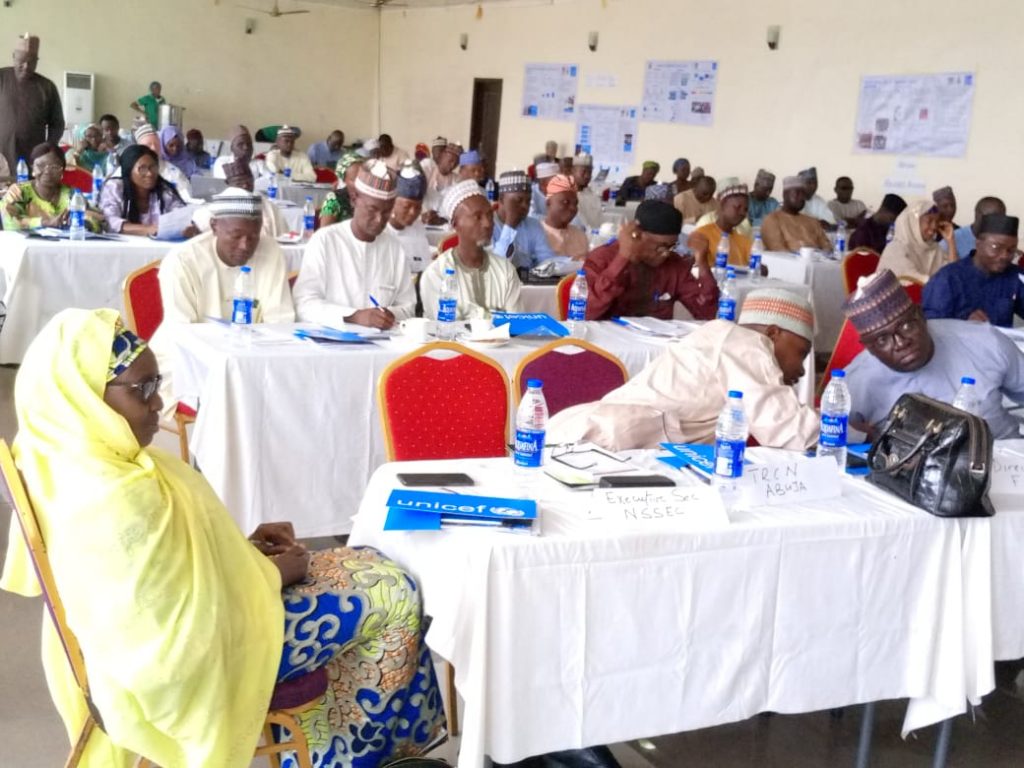
Mrs Azuka equally called on Northern state governors to increase domestic financing for education to address other key issues within the sector.
The Education Specialist noted that the project was Implemented from 2012 to 2022 with the aim to improve access, enrolment, retention, and learning outcomes for girls in basic education in Northern Nigeria, particularly in Bauchi, Katsina, Niger, Sokoto, Zamfara, and Kano states.
She further revealed that, GEP3 was a collaborative effort between the Foreign Commonwealth & Development Office FCDO, UK, and the Federal Ministry of Education.
Mrs Azuka Menkiti further urged Stakeholders in the education sector in the Northern region not to relent in their efforts toward supporting Girls to acquire sound and quality education.
in her address, the Director, Senior Secondary Education Department, Federal Ministry of Education, Hajiya Binta AbdulKadir represented by Director, Unity Schools Division, Mrs Mayo Monica Ogah expressed hope that the meeting would bring systemic changes in various states with regards to the education of the girls.
“I am bold to state that GEP3 was a success in so many ways, as it changed the narrative in our school enrolment and completion at the Basic Education level. Please permit me to peep into the heart of our presenters to say that GEP3 was conceived as a result of the success achieved through the implementation of GEP1 and GEP2”
Dr Binta Abdulkadir also said the increasing need to improve enrolment, retention and completion rate of Girls at the Basic Education level cannot be overemphasized, hence GEP 3 focused on three thematic areas which includes Enrolment Drive, improving teacher Capacity to deliver effective learning and improved governance to strengthen education.
“Under these thematic areas, other activities like the Cash Transfer programme, Community engagement (School Based Management Committee- SBMC), Centre Based Management Committee-CBMC, Mothers’ Association all helped to achieve improved access, retention and completion of school”
She maintained that, Girls Education Projects Phase 3 (GEP3) had also provided capacity development for teachers and school administrators through strategies like the High Level Women Advocates (HILWA), G4G and other activities, adding that, girls were supported and mentored to enroll, remain, complete and transit to higher levels of education.
According to Dr Binta Abdulkadir, the strategies had impacted positively on girls enrolment and completion of school.
Also Speaking, Dr Idris Baba of UNICEF Kaduna field office disclosed that, the implementation of the Girls’ Education Programme 2012-2022 in Northern Nigeria has made remarkable progress in reducing inequalities and improving girls enrolment , retention, and learning outcomes in schools .
Dr Baba noted that, the programme’s success could only be attributed to adopting a comprehensive societal approach, considering a wide range of social, psychosocial, cultural, and economic factors that affect girls’ education.
He stressed that, the combination of multiple intervention, targeting various stakeholders and utilizing different change modalities was instrumental in inducing the desired shifts in perceptions and behaviours.
“UNICEF is grateful for your ongoing partnership and collaboration which allows us to focus on reaching the most marginalized children in Nigeria. As this collaboration continues, it charges us with great responsibility to continuously reflect on whether our efforts are aligned with what the evidence shows to be the greatest needs in this country”
“We cannot fulfill our commitment to ensuring quality, inclusive education for every child unless we commit to getting those who remain out of school into education and ensuring that the education that they receive is high quality and them adequately for the future”
Dr Baba acknowledged and commended the efforts of government agencies for giving the issues of out-of-school phenomenon and foundational learning the attention it deserved.
The participants were drawn from Northern states perticulerly stakeholders on Basic Education.
COV/AMINU DALHATU

